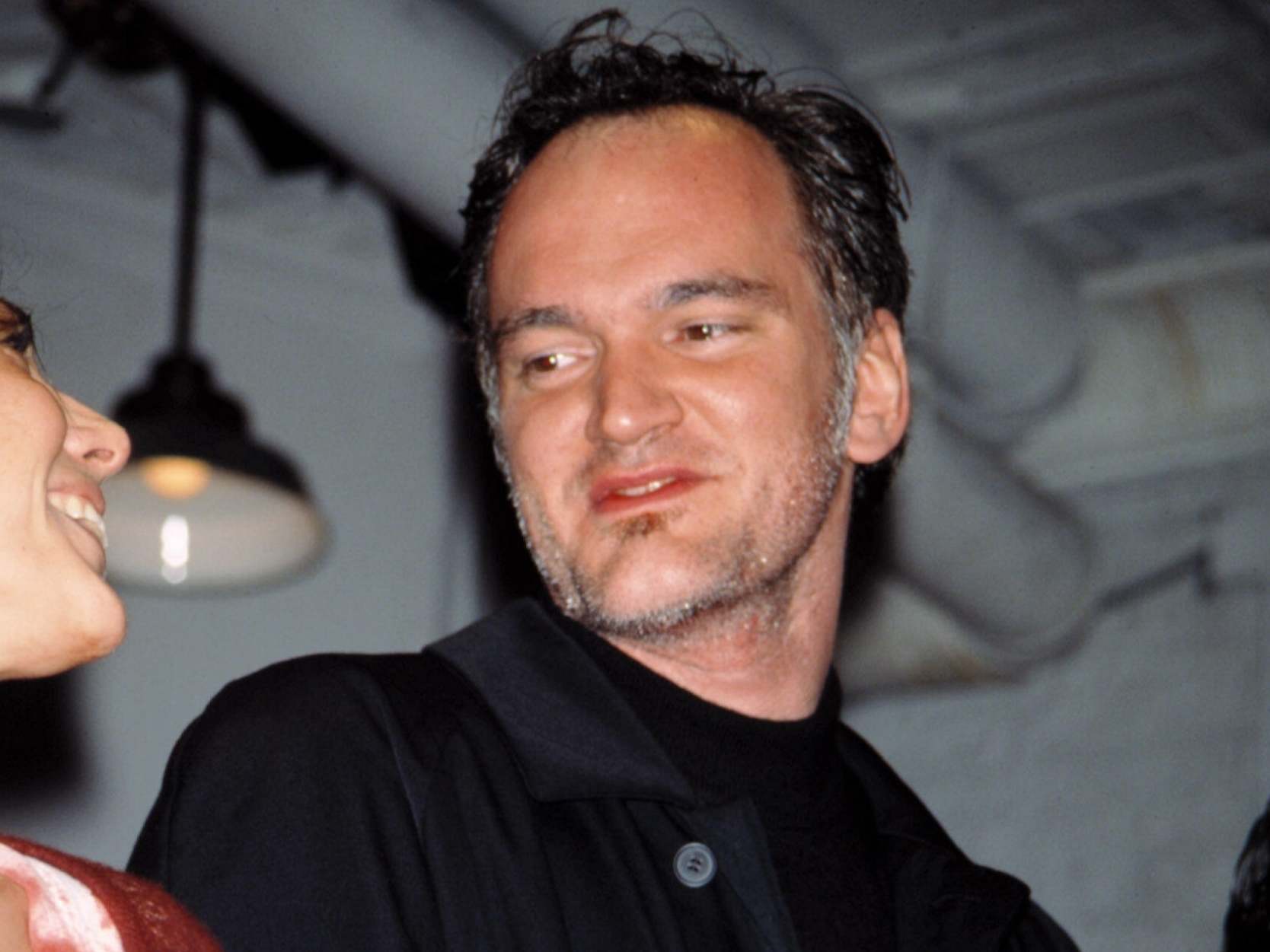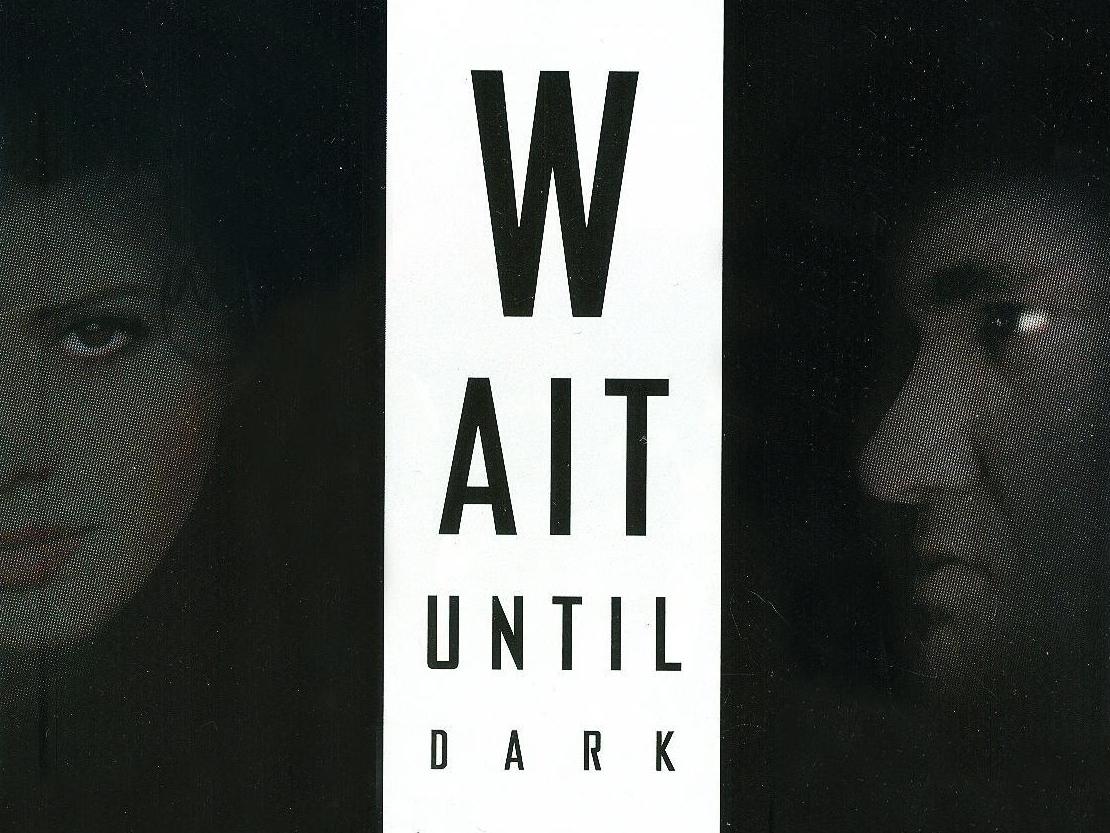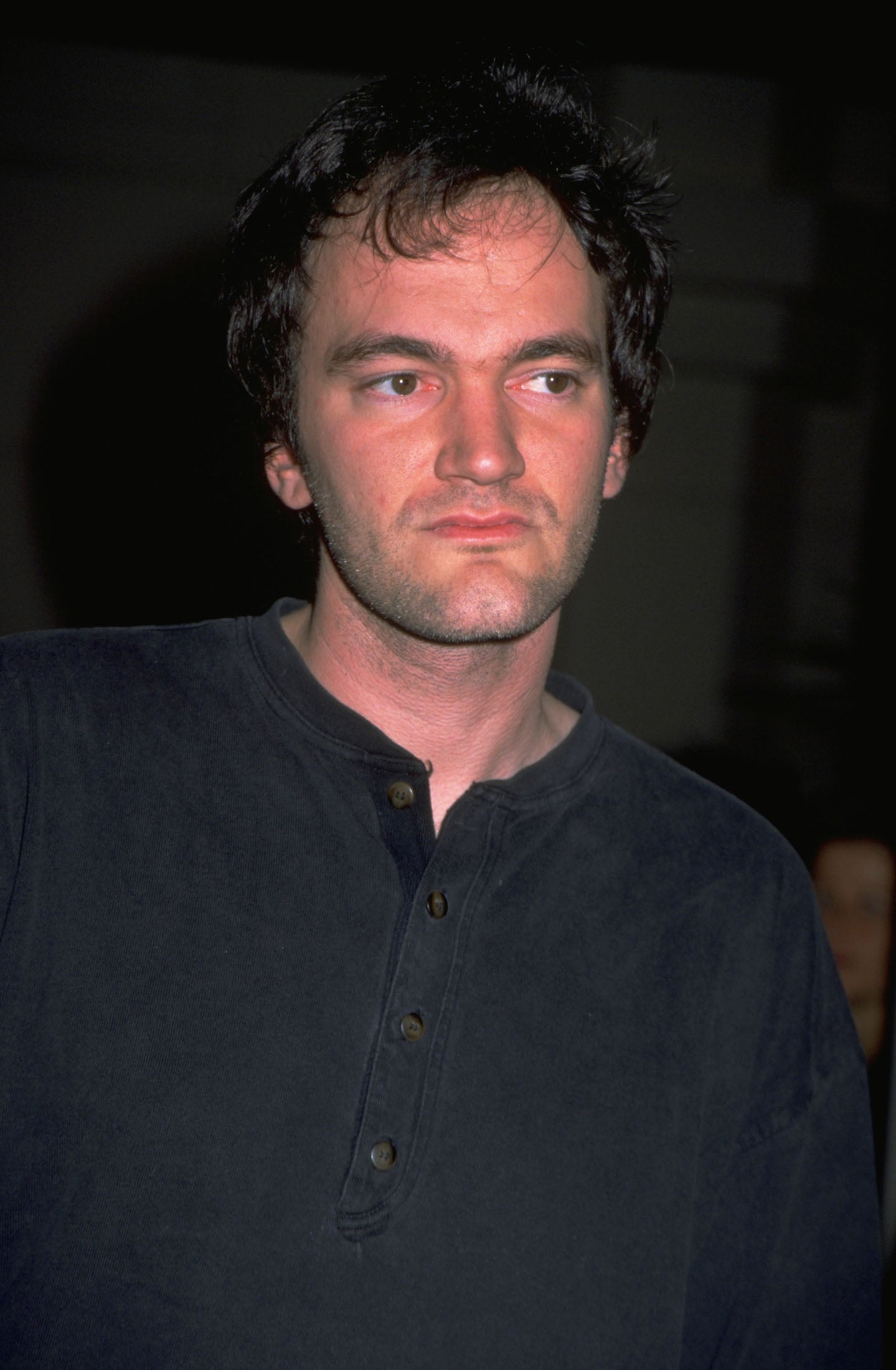The Independent's journalism is supported by our readers. When you purchase through links on our site, we may earn commission.
‘It was just weird and excruciating’: Revisiting Quentin Tarantino’s doomed, violent and quickly forgotten Broadway debut
Twenty-one years ago, Quentin Tarantino took the starring role in a Broadway play, and was promptly annihilated for it. Now, as Tarantino plots his retirement from filmmaking, Adam White revisits a long-forgotten pop culture mystery


For a few months in 1998, Quentin Tarantino decided to become a Broadway star, and today no one wants to talk about it. Despite the sometimes unnecessarily intimate knowledge many of us have of the visionary filmmaker, with everything from his pre-fame video store job to his love of feet as baked into his biography as his actual movies, Wait Until Dark remains a curious Tarantino black hole – maligned upon its debut, forgotten about soon after, and rarely discussed in the years since. Perhaps for good reason.
A revival of a hit 1966 play starring Lee Remick and Robert Duvall, which was turned into a movie a year later starring Audrey Hepburn and Alan Arkin, Wait Until Dark revolves around a blind woman being menaced by three burglars in her home. The trio are eager to find a doll in her apartment that has, unbeknownst to her, been stuffed with heroin. Its revival was a risky move for Nineties Broadway, pulp thrillers long having fallen out of favour when it came to live theatre. But the involvement of actor Marisa Tomei and occasional-actor Tarantino, participating reportedly at the behest of acclaimed director Leonard Foglia, was enough to get it financed.
Tarantino has always insisted we watch him act. He’s never been particularly good at it – always bringing the exact same quality of sleazy hyper-mania whether the part calls for it or not – but that has rarely held him back. In the immediate aftermath of Pulp Fiction, which won him an Oscar and anointed him the most exciting filmmaker working in America, Tarantino went all out, embracing his celebrity and attempting to become a movie star in the process. There was From Dusk Till Dawn, the grungy vampire movie in which he shared top billing with George Clooney, the forgotten indie Destiny Turns on the Radio, and an uncomfortable appearance as an abusive director in Spike Lee’s Girl 6. In hindsight, considering the pair’s well-publicised feud, that last one feels more like a deliberate bit of sabotage.
But bit parts in movies are an entirely different beast to Broadway, which has sent crashing down to earth even the most admired of movie stars – most memorably Julia Roberts, whose stage debut in the 2006 revival of Three Days of Rain was met with horrific reviews. Tarantino, whose only prior stage experience was community theatre when he was 17, was promptly ridiculed by the press during Wait Until Dark’s two-week try-out in Boston, and later its arrival on Broadway. The play, at the Brooks Atkinson Theatre, shuttered after a limited 16-week run.
“Such is [Tarantino’s] performance that you wonder why he needs a knife when he could just beat his enemies to death with his heavy wooden acting,” wrote the New York Daily News. “As a movie director Tarantino may be the new Alfred Hitchcock, but as a stage actor he is the new Ed Wood. He has the vocal modulation of a railway station announcer, the expressive power of a fence post and the charisma of a week-old head of lettuce.”
Others followed suit. “Tarantino has become the Madonna of male thespian wannabes,” wrote Entertainment Weekly, “a figure desperate to grab the theatrical spotlight, yet doomed by the very calculation of his mind to seem flat and telegraphed just when he thinks he’s being extravagant.” According to The New York Times, Tarantino “registers at best as merely petulant, like a suburban teenager who has been denied the use of his father’s Lexus for the night”.
There was, undeniably, a personal sting to much of the criticism. Tarantino was so wildly successful throughout the Nineties, with a trio of adored movies released one after another, that the notices for Wait Until Dark often read like attempts to launch a backlash. Tarantino, after all, was doing something rather unusual, demonstrating a confidence, or arguably an arrogance, that he could slip seamlessly into vastly different fields with no worry. But even those on the ground, watching Wait Until Dark with their heads in their hands, had little good to say about him.
All of it was misbegotten except for Marisa Tomei. But I don’t know how you play opposite somebody like him, that’s frightening to me
“It was unforgettable, and not in a good way,” says Bruce, a theatregoer who saw the play during its New York run. “I thought the casting of him was weird, because I didn’t think he was an actor per se. And that proved to be the case. It was terrible, I thought. It had no colour, it had no variety. If you watch Alan Arkin in the movie – he’s chilling. And I’m sure Robert Duvall was the same in the original production. It was just one-note. It was surface. You weren’t scared of him in any way. It was just weird and excruciating, and I was just there to love it. I wanted him to be great, I always want everybody to be great. But it wasn’t.”

John, another theatregoer who saw the play, felt that Tarantino’s badness helped rather than hindered the play’s effect. “I can’t say even now, looking back at my perspective as a child, that he was the greatest actor,” he recalls. “But on the other hand, it did fit the part. For what the dialogue is and the situation is – let’s just say he’s playing a bottom-feeder, you know? And it fit! Because you weren’t rooting for him anyway, so it worked.”
Both men do, however, praise Tomei. A recurring presence on Broadway, most recently signing up for a revival of Tennessee Williams’s The Rose Tattoo, the Oscar-winner was often credited in the press with salvaging a not-very-good play, and happily wasn’t put off live theatre in the aftermath. “All of it was misbegotten except for her,” Bruce remembers. “She was really good, she projected. But I don’t know how you play opposite somebody like him, that’s frightening to me. They were all just in different worlds.”

Tarantino has rarely spoken about Wait Until Dark in the years since, only once explaining to Vanity Fair that the volatile reaction to his work dented his confidence. “I tried not to take it personally, but it was personal,” he said. “It was not about the play – it was about me, and at a certain point I started getting too thin a skin about the constant criticism. It started getting to me. It’s f***ed up when people make fun of you.”
A friend of Tarantino’s told the magazine: “You don’t just go from acting in little bit-parts in your own movies to all of a sudden somebody taking advantage of you – although he was game for it – by making you the lead of a Broadway play. That was really horrible. He was like fodder, thrown up there to get the shit kicked out of him … He was traumatised by that resounding slam that was delivered to him by the New York critics. He went into a tailspin. It scared him. He’s a very wounded guy in that way.”
This may also explain why he’s been so reluctant to revisit it – as is everyone else who worked on it. Despite numerous attempts to speak with the play’s actors, its director and even its below-the-line crew, no one was willing to talk on the record about Wait Until Dark – granting it an almost mystical air, of something incredibly strange that came and went in a flash and was never spoken of again. Which is a shame. Because for all the negative reviews that engulfed it, there were audience members that did adore it.
Recalling his experience of watching Wait Until Dark, John remembers being just 11 years old and already a theatre lover, and finding himself captivated by its staging, its tense soundscape and Tomei’s convincing performance as a blind woman. And, more than anything, how much it scared him. “I was so riveted,” he laughs. “There was one point where Tarantino came leaping out of the bedroom, and I mean literally. I don’t know if he was on some sort of elevated spring or what it was, but the man came leaping out of a doorway, in the dark, and lunged at Tomei, pushing her onto the couch or the floor or whatever. And I tell you, the entire theatre, somewhere between a thousand or 1,400 people, screamed all at once. It was so effective. So I don’t care what anyone says about the play, if you were there and you witnessed that, it was brilliant.”
What makes Wait Until Dark particularly interesting to revisit now is that Tarantino will soon be a free agent, calling time on his directorial career after his 10th movie, his ninth being Once Upon a Time in Hollywood, and recently teasing what he may do after. Speaking to GQ Australia in July, Tarantino said that he sees himself “writing film books and starting to write theatre” once he finishes his 10th film. “So I’ll still be creative,” he added. “I just think I’ve given all I have to give to movies.”

He hasn’t mentioned acting, but while it’s tempting to urge him never to try it again, there’d be something intriguingly ballsy about Tarantino returning to the stage 25 years or so after his first failed crack at it. His Wait Until Dark didn’t work, and he was duly annihilated for it, but if Tarantino has proven anything over the course of his career, it’s that he is a man that thrives on giving us the unexpected.
Join our commenting forum
Join thought-provoking conversations, follow other Independent readers and see their replies
Comments
Bookmark popover
Removed from bookmarks